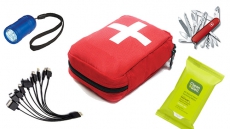A quick look at the difference between expiry date and best before date on food products and why they need to be followed.
Many of us often tend to ignore expiration or best before dates on food items. In fact, we rely on our sensory organs, namely sight, taste and smell, to decide if the food is safe for consumption. What happens if food is eaten past the expiry date? Are there any health risks attached in doing so? Is expiry date different from best before date? These are questions you need to ask yourself the next time you look pass the date mentioned on the label. The right intake of food is crucial as it determines our overall health and well-being. This well-being can only be attained if the food we eat is accurately monitored.
Talking about food monitoring, there is always confusion between expiry date and best before date. Firstly, they are not the same thing. Health Canada defines expiration date as the “date up to which the food maintains its microbiological and physical stability and the nutrient content declared on the label.” In simpler terms, foods past the expiration date are not safe for consumption. Expiry dates are mentioned on selective food products like infant formula and nutritional supplements, and need to be followed.
Health Canada states that a best before date tells you about the freshness and shelf life of the unopened food you are buying. “It is a way of expressing the durable life of a product. The durable life is described as the number of days (starting with the day the food is packaged) that the food will keep its quality, taste and nutrition – as long as it’s stored properly,” clarifies Kate Comeau, dietitian and spokesperson for Dietitians of Canada. One can eat foods past the best before date, but it does not guarantee product safety. “It measures the quality of the food – not the safety. If in doubt, throw it out!” advises Comeau.

A simple trick to make food items with best before dates last longer is by freezing them. Health Canada mentions that freezing food invalidates the best before date. However, the length of time you can freeze items depends on the type of food you are freezing and its ingredients.
This brings us to the topic of storage. Proper storage of food can ensure that it lasts longer and is not contaminated. Comeau points out that cross contamination is a common issue that leads to people getting sick. “For example, after spreading sauce from a jar on chicken, if you put the dirty spoon back in the jar, the spoon could transfer salmonella from the chicken to the jar. The salmonella now in the jar could cause diarrhea, vomiting and even death,” she explains with an example.
Similarly, instructions for refrigeration should not be disregarded. “[If] A product that is meant to be refrigerated is left out for a long period of time, [it] can cause you to be sick because bacteria multiply much more quickly in warmer temperatures,” cautions Comeau.
Lastly, to avoid food wastage, Comeau encourages families to create a meal plan as well as a grocery list each week. “At the end of the week, take a look at what is still left, which meals your family loved and which were less popular. You can use this information to plan for
the next week. Children are more likely to eat what is served if they are participating in the planning and preparation of food.”
Keep track of what you eat and drink for a healthy present and future. Remember, your health is in your hands.

Tips for safe food storage
1. Butter and eggs should be stored in their own container on the refrigerator shelf, where it’s coldest, not on the inside door. The refrigerator door is actually not the coldest part of the fridge.
2. Fruits like apples, tomatoes and bananas, continue to ripen after they have been picked. This is because these fruits give off a gas called ethylene. Ethylene gas makes foods ripen faster. If vegetables are stored with fruits that give off ethylene, they will begin to ripen and may spoil faster. This is why fruits and vegetables should not be stored in the same part of the refrigerator.
3. Root vegetables such as potatoes and onions should be stored in a cool, dry place such as a cold cellar or cold room. Other vegetables should be refrigerated.
4. Frozen foods should be stored at temperatures below -18°C (0°F). To defrost frozen foods, always thaw in the refrigerator, not at room temperature.
5. Refrigerate leftovers as soon as possible after the foods have cooled. Cover with plastic wrap or store in a plastic container, with a label and date. Leftovers can also be frozen. For convenience you may want to freeze leftovers in small four to six portion sized containers.
- Inputs from EatRight Ontario





